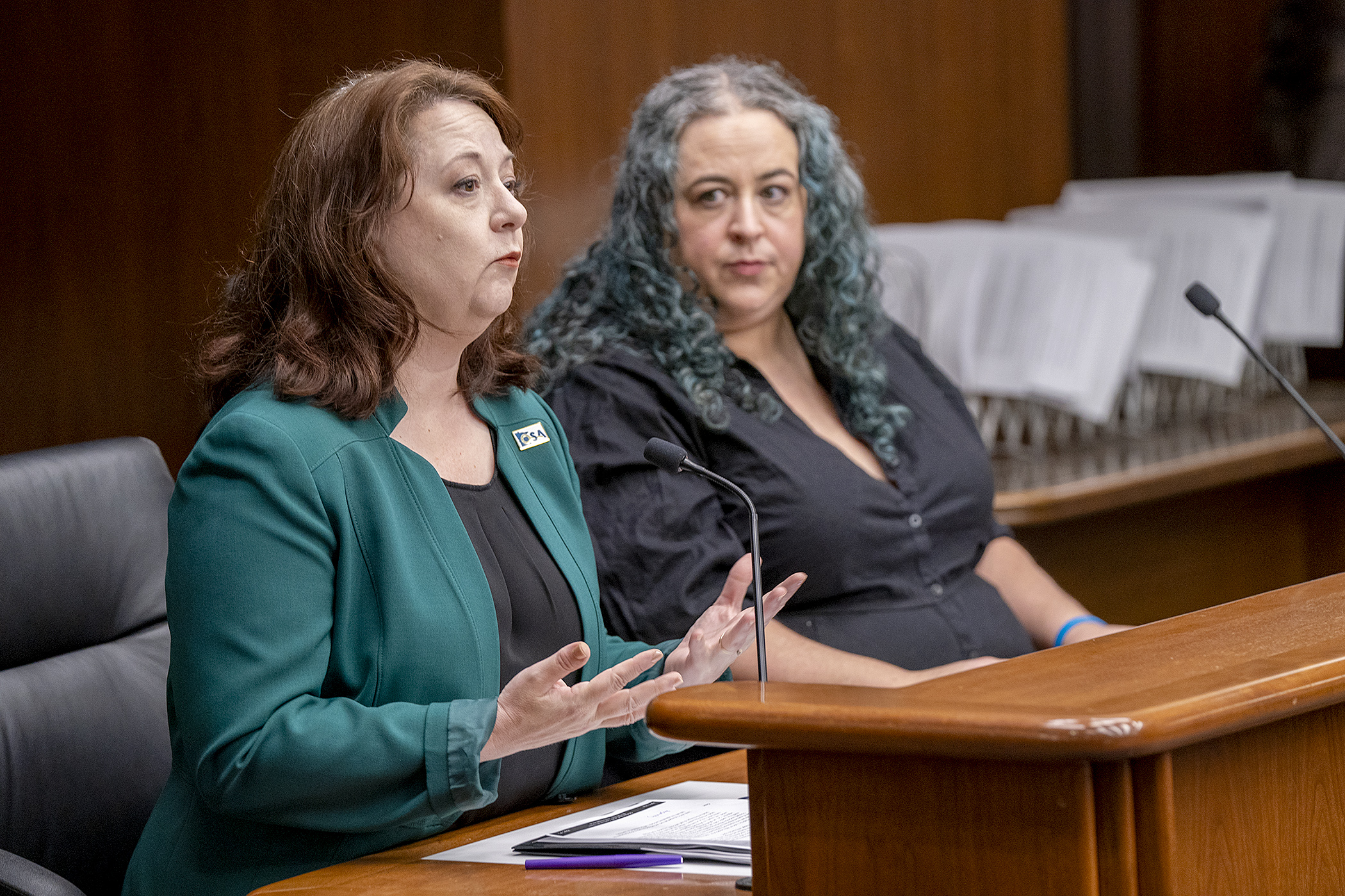Cities, counties could impose local sales taxes to fund certain infrastructure projects

Approving a potential local sales tax bump may no longer need legislative approval.
Sponsored by Rep. Aisha Gomez (DFL-Mpls), HF5336 would let cities and counties impose local sales taxes to fund certain capital projects. Those projects could include convention centers with at least 50,000 square feet for exhibit and meeting space, sports complexes, libraries, parks, and trails. Approval from the state auditor and voter approval would be required.
The bill was held over, as amended, Friday by the House State and Local Government Finance and Policy Committee.
Gomez also sponsors the provisions in HF5335. As amended, it was laid over Thursday by the House Taxes Committee for potential inclusion in a later bill.
“At a high level, it makes changes to requirements for local sales taxes. It allows local municipalities, without coming in front of the Legislature to put local sales tax proposals in front of their communities via referendum,” Gomez said.
A local unit of government wanting to put a sales tax increase question before its voters must now generally get legislative approval to do so.
“The state auditor has experience doing some oversight of the requirements for tax-increment financing,” Gomez said. “So, the idea was just to give them some authority to oversee it so that it took some of the legislative kind of political aspects out of it.”.
State Auditor Julie Blaha said her office’s role would be to certify, like they do when assessing local government or county program aid, and data collection.
“The kind of work we want to do in these kind of things is we have a tight standard, and we follow the standards. The stricter and the tighter we make the requirements in this bill the easier our job is,” she said.
“We’re not asking the auditor to make anything that you could describe as a judgment call. It’s basically certifying that the projects meet the statutory requirements,” Gomez said. Added Blaha: “We do not want discretion.”
Rep. Jon Koznick (R-Lakeville) voiced unease with the proposal, saying the Legislature would abdicate its authority to the executive branch and would make it easier to raise taxes. Rep. Bobbie Harder (R-Henderson) questioned the minimal scope of permitted projects under the legislation, omitting things like wastewater treatment and flood mitigation.
In part, Gomez said some recommendations come from a Local Taxes Advisory Task Force created by a 2023 law to explore how cities and counties use local taxes to fund projects. Its legislative report was published in February.
This bill would also establish a local sales tax equalization distribution payment program whereby a portion of the money raised would be retained by the Department of Revenue and distributed on a needs-based basis to communities that do not have a large retail base, but still have needs.
“Do we want to be a state where your access to amenities depends on your proximity to a robust sales tax or not?” Gomez said. “… We have a long history on a bipartisan basis of saying we don’t.”
Nathan Jesson, an intergovernmental relations representative at the League of Minnesota Cities, told lawmakers in written testimony that provision is potentially troubling.
“Local sales taxes are generally popular with voters because they have control over what the funds are spent on and they can see the results. That’s why since the 2019 changes to the authorization process 29 out of 33 projects have been approved at the ballot box,” he wrote. “Creating a statewide fund undermines the appeal of the dollars being raised locally and staying local. If the legislature wishes to create an equalization component, it would be best if the revenue were shared with surrounding communities rather than statewide.”
Related Articles
Search Session Daily
Advanced Search OptionsPriority Dailies
Speaker Emerita Melissa Hortman, husband killed in attack
By HPIS Staff House Speaker Emerita Melissa Hortman (DFL-Brooklyn Park) and her husband, Mark, were fatally shot in their home early Saturday morning.
Gov. Tim Walz announced the news dur...
House Speaker Emerita Melissa Hortman (DFL-Brooklyn Park) and her husband, Mark, were fatally shot in their home early Saturday morning.
Gov. Tim Walz announced the news dur...
Lawmakers deliver budget bills to governor's desk in one-day special session
By Mike Cook About that talk of needing all 21 hours left in a legislative day to complete a special session?
House members were more than up to the challenge Monday. Beginning at 10 a.m...
About that talk of needing all 21 hours left in a legislative day to complete a special session?
House members were more than up to the challenge Monday. Beginning at 10 a.m...